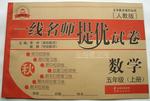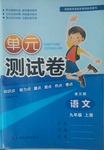题目内容
The war and the suffering ____ caused affected him very greatly.
| A.that | B.it | C.which | D.what |
B
解析

练习册系列答案
 一线名师提优试卷系列答案
一线名师提优试卷系列答案 阳光试卷单元测试卷系列答案
阳光试卷单元测试卷系列答案
相关题目
题目内容
The war and the suffering ____ caused affected him very greatly.
| A.that | B.it | C.which | D.what |
B
解析

 一线名师提优试卷系列答案
一线名师提优试卷系列答案 阳光试卷单元测试卷系列答案
阳光试卷单元测试卷系列答案